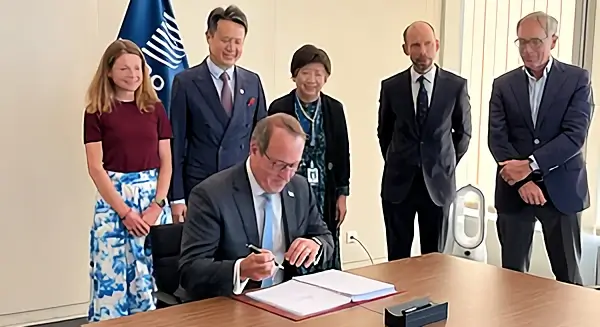The UK has officially signed the Riyadh Design Law Treaty (RDLT) at the World Intellectual Property Organization General Assembly in Geneva on 11 July 2025, simplifying international industrial design protection for UK designers and businesses.
This treaty aims to reduce administrative burdens, enhance global competitiveness, and support SMEs by harmonizing application processes.
Streamlining International Design Protection
The Riyadh Design Law Treaty represents a significant step forward for UK designers and businesses seeking to protect their creations internationally.
By simplifying the application process, it allows designers to safeguard their work across multiple countries without navigating complex national procedures.
This reduction in legal and administrative expenses is particularly beneficial for small and medium-sized enterprises (SMEs), which often have limited resources.
Moreover, the treaty harmonizes procedures across countries by standardizing timelines for responses and limiting required application information. This not only speeds up the registration process but also reduces delays that could risk losing design rights.
For creative industries in the UK, this means faster protection of original designs, encouraging innovation and potentially leading to increased export opportunities.
Benefits for Designers
- Simplified international design protection processes
- Reduced legal and administrative costs
- Standardized timelines for application responses
- Enhanced ability to safeguard creations globally
- Encouragement of innovation through faster registration
- Increased export opportunities for creative industries
The UK’s Role in Global Harmonization Efforts
The UK’s signing of the RDLT signals its commitment to international design law harmonization. The treaty was negotiated in Riyadh in November 2024 and will come into force once ratified by 15 countries.
This move aligns with the UK’s ongoing efforts to strengthen intellectual property frameworks post-Brexit, ensuring continued global market access.
A New Era of Digital Innovation
The treaty encourages modernization of design systems through electronic applications and public digital databases.
This shift not only enhances transparency but also integrates emerging technologies like AI-assisted design verification.
Such advancements could accelerate the UK’s digital transformation in intellectual property services, fostering a more innovative design ecosystem.
Voices from Industry Leaders
Adam Williams, CEO of the UK Intellectual Property Office, emphasized the treaty’s benefits:
“On behalf of Minister Feryal Clark, I am pleased to sign the Riyadh Design Law Treaty (RDLT), which will make it easier for designers and businesses…to apply for…a registered design in other countries.”
His statement underscores the importance of supporting SMEs through simplified systems.
Additional Reading
In a Nutshell
The Riyadh Design Law Treaty marks a pivotal moment for UK designers seeking global protection. By reducing barriers and fostering innovation through streamlined processes, it empowers SMEs to compete internationally while safeguarding creativity.
As more countries ratify this treaty, its full potential will unfold, benefiting both creators and consumers worldwide.
Sources: UK Government, ACID, WIPO, Intellectual Property Office and Feryal Clark MP.
Prepared by Ivan Alexander Golden, Founder of THX News™, an independent news organization delivering timely insights from global official sources. Combines AI-analyzed research with human-edited accuracy and context.









